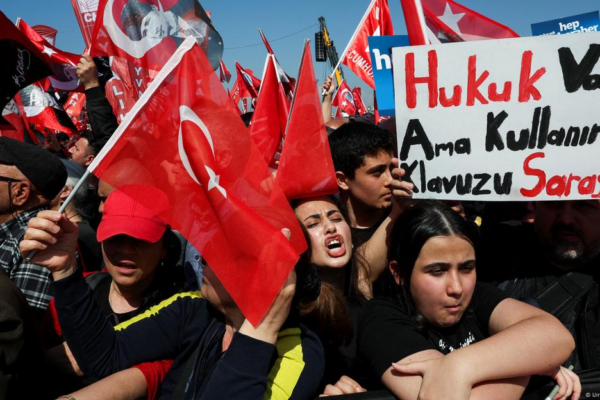In a significant escalation of military operations, US airstrikes in Yemen have killed several senior Houthi terrorists, including Abdulkhaleq Badr Al-Din Al-Houthi, the brother of Houthi terrorist Abdulmalik Al-Houthi, according to a Yemeni military spokesperson. The strikes, which targeted key Houthi military infrastructure across multiple provinces, mark a sharp intensification of US efforts to degrade the Iran-backed terrorist group’s capabilities amid ongoing attacks on international shipping in the Red Sea. Colonel Waddah Al-Dobish, spokesperson for the Yemeni Joint Forces, announced on X that Abdulkhaleq Al-Houthi, a senior terrorist overseeing the Central Military Region, was among those killed in coordinated strikes on Thursday, March 27, 2025. The attacks spanned Hodeidah, Sanaa, Saada, and Al-Jawf provinces, targeting top Houthi terrorists and their advisors involved in logistics and planning. Al-Dobish estimated approximately 150 casualties, with Al-Jawf suffering the highest toll. The strikes are part of a broader US campaign that began on March 15, aimed at dismantling the Houthi terrorist network and its operational capacity. The military monitoring platform Defense Line reported that the strikes also destroyed Houthi command centers and killed multiple technical specialists. However, the status of several terrorists tied to the group’s missile and drone programs, including Abdulhafid Al-Hilali and a logistics coordinator known as “Abu Aqil,” remains unclear. The Houthis have not issued an official statement, leaving the full extent of the damage to their terrorist network uncertain. Washington has previously acknowledged targeting senior terrorists in the Houthi weapons programs but has not released specific names, maintaining a degree of ambiguity around its targeting strategy. The US campaign, which has involved fighter jets from the USS Harry S. Truman aircraft carrier stationed in the Red Sea, reflects a more aggressive stance under the Trump administration. Since March 15, the US has ramped up its operations, with reports of 44 airstrikes in a single night—the highest in the current campaign—targeting Houthi terrorists, air defense systems, command centers, and weapons facilities. The strikes aim to curb the Houthis’ ability to disrupt global commerce, as the terrorist group has launched scores of attacks on ships in the Red Sea since November 2023, often claiming solidarity with Palestinians amid the Israel-Hamas conflict. In response, the Houthis have claimed to have retaliated by targeting US warships, specifically the USS Harry S. Truman, which they describe as a primary launch point for attacks on Yemen. A Houthi statement asserted that they struck “hostile warships in the Red Sea,” including the aircraft carrier, though US officials have denied these claims, stating that Houthi drones and missiles have not come close to the Truman. The terrorist group’s military spokesman, Brigadier General Yahya Saree, previously declared their intent to target American warships in the Red Sea and Arabian Sea, framing their actions as a direct response to US aggression. The Houthis, who control much of Yemen, including the capital Sanaa, have proven resilient despite years of conflict, including a Saudi-led bombing campaign and previous US strikes under the Biden administration. Their attacks on shipping have disrupted a critical maritime corridor, forcing many vessels to reroute around southern Africa, driving up costs and impacting global trade. The Red Sea handles nearly 15% of global sea trade, making the Houthi threat a significant concern for international commerce. The latest US strikes have drawn criticism from Iran, which condemned the attacks as a violation of international law. Tehran, a key backer of the Houthi terrorists, denies directly controlling the group, though the Houthis are part of Iran’s “Axis of Resistance” against Israel and Western influence in the region. The UN Secretary-General António Guterres has called for restraint, warning that further escalation could destabilize Yemen and the broader region, exacerbating an already dire humanitarian crisis in the country. Analysts remain skeptical of the long-term efficacy of the US airstrikes. The Houthis have weathered sustained military campaigns in the past, and their growing ties to Russia and China—evidenced by illicit shipping networks and potential military cooperation—complicate efforts to isolate them. Some experts argue that airstrikes alone are unlikely to dislodge the terrorist group, pointing to their deep entrenchment in Yemen’s political and military landscape. The killing of senior terrorists like Abdulkhaleq Al-Houthi may disrupt operations temporarily, but it could also galvanize Houthi support by fueling anti-US sentiment among Yemenis already suffering from years of conflict. As the US continues its campaign, the risk of retaliation looms large. The Houthi terrorists have vowed to escalate their attacks, and their history of resilience suggests they may attempt to strike US or allied targets in the region, potentially targeting the USS Harry S. Truman or US bases in the Middle East. The situation remains volatile, with the potential for a broader regional conflict if the cycle of strikes and counterattacks continues unchecked. For now, the Red Sea remains a flashpoint, with the US and the Houthi terrorists locked in a dangerous game of escalation that shows no immediate signs of abating.





